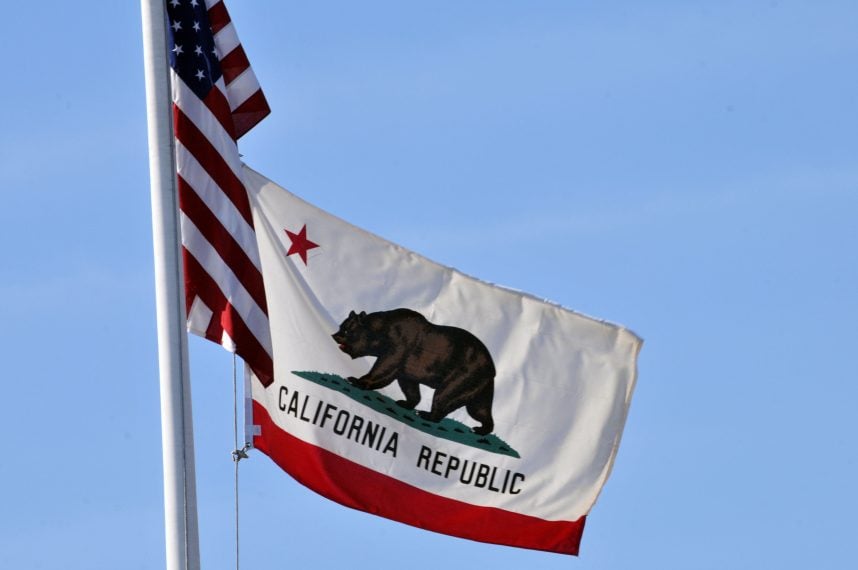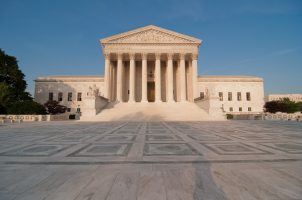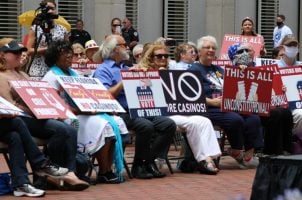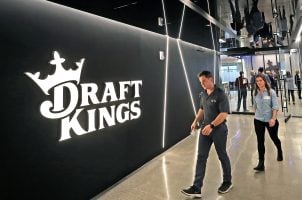Florida Ruling Could Be Template for California Sports Betting, Says Analyst
Posted on: June 18, 2024, 04:25h.
Last updated on: June 19, 2024, 10:23h.
On Monday, the United States Supreme Court declined to hear an appeal challenging Florida’s decision permitting the Seminole Tribe to conduct online sports wagering via computer servers located on tribal land.

Not only does the Supreme Court passing on that appeal pave the way for Hard Rock International, the gaming arm of the Seminole Tribe, to maintain an online sports wagering monopoly in the third-largest state through 2051, it could also provide a template for other states don’t permit online sports betting, but where tribes control gaming. That group includes California.
In a note to clients on Tuesday, Deutsche Bank analyst Carlo Santarelli said the Supreme Court’s decision to not hear the West Flagler appeal “provides a blueprint for California and other states with tribal gaming.”
Much like Florida, however, should the tribes successfully amend the compact, the opportunity for the traditional online operators would remain cloudy,” wrote the analyst regarding California tribes.
Santarelli added that with the Florida ruling serving as a precedent, California tribes could simply amend their gaming accords with the state rather than engaging in a costly ballot initiative seeking voters’ approval. A related measure put forth by several large tribal casino operators was soundly defeated in 2022, and some of the tribes acknowledged there’s limited appetite among voters in the state to deal with the issue again anytime soon.
Florida Ruling Could Be Bad News for OSB Operators in California
The Supreme Court’s decision to not hear the West Flagler appeal didn’t weigh on sports wagering equities on Monday as DraftKings (NASDAQ: DKNG) and FanDuel parent Flutter Entertainment (NYSE: FLUT) rallied on Monday, with DratKings extending those gains on Tuesday.
However, that ruling could imply bad news for those operators and others when it comes to California. California differs from Florida in that the former has multiple tribal gaming entities, several of which are large, whereas the Sunshine State is dominated by Hard Rock. While the Golden State’s higher population of tribal gaming entities might imply that some would eventually work with out-of-state operators such as DraftKings and FanDuel, Santarelli says that view “lacks an understanding around tribal politics.”
Commercial gaming companies already committed missteps in California, backing a 2022 internet sports wagering ballot initiative that essentially went over the heads of tribes. Tribes responded by pouring tens of millions of dollars into defeating that proposal in dramatic fashion.
Even if California tribes decided to partner with commercial operators, the ensuing financial agreements would likely heavily favor the tribes, meaning the largest state in the US might not be the moneymaker commercial operators and investors hoped it would be.
“Given the sensitivity around the control of gaming in the state, we believe it is naïve to expect the tribes to turn over any element of gaming to outside entities, without a significant and ongoing financial return,” opined Santarelli.
California, Florida Could Be Off Limits to Commercial Operators
By declining to hear the West Flagler appeal, the Supreme Court essentially affirmed that tribes can offer online sports betting as long as the servers are located on tribal land. That reduces the need for middlemen and in California where gaming tribes are active on the political front, it could be an easy lift to amend gaming compacts with the state.
As for Florida, the Seminoles now hold decades-long dominance of online sports betting there and the same will be true of iGaming, which could be approved in the state in 2026. Santarelli said there are “negligible” opportunities for outside operators to turn profits in the state.
“The ruling, in our view, hands the Seminole Tribe all the cards, and they can now proceed however they wish,” concluded the analyst.
Bottom line: an implication from the Supreme Court ruling is that California and Florida — the largest and third-largest states, respectively — are essentially nonstarters for commercial sports betting companies and there’s not much they can do about that.
Related News Articles
Florida Sports Betting Compact Opponents Take Case to US Supreme Court
Anti-Gambling Group Adds Voice to Florida Sports Betting Case
DraftKings, Everi Among Gaming Companies on Best Places to Work List
Most Popular
FTC: Casino Resort Fees Must Be Included in Upfront Hotel Rates
Genovese Capo Sentenced for Illegal Gambling on Long Island
NBA Referees Expose Sports Betting Abuse Following Steve Kerr Meltdown
UPDATE: Former Resorts World & MGM Grand Prez Loses Gaming License
Most Commented
-
UPDATE: Whiskey Pete’s Casino Near Las Vegas Closes
— December 20, 2024 — 30 Comments -
Caesars Virginia in Danville Now Accepting Hotel Room Reservations
— November 27, 2024 — 9 Comments -
UPDATE: Former Resorts World & MGM Grand Prez Loses Gaming License
— December 19, 2024 — 8 Comments -
FTC: Casino Resort Fees Must Be Included in Upfront Hotel Rates
— December 17, 2024 — 7 Comments
















No comments yet